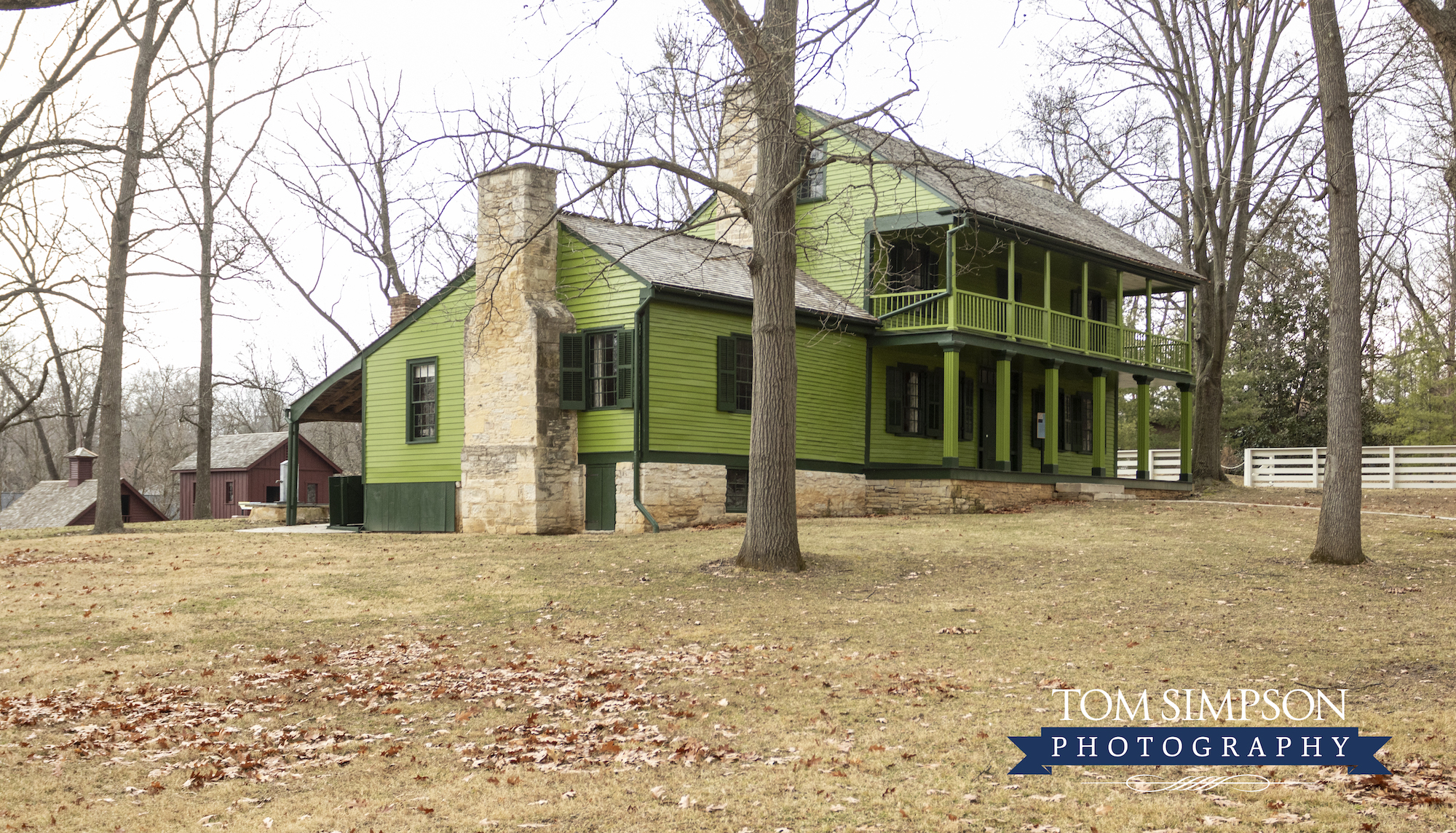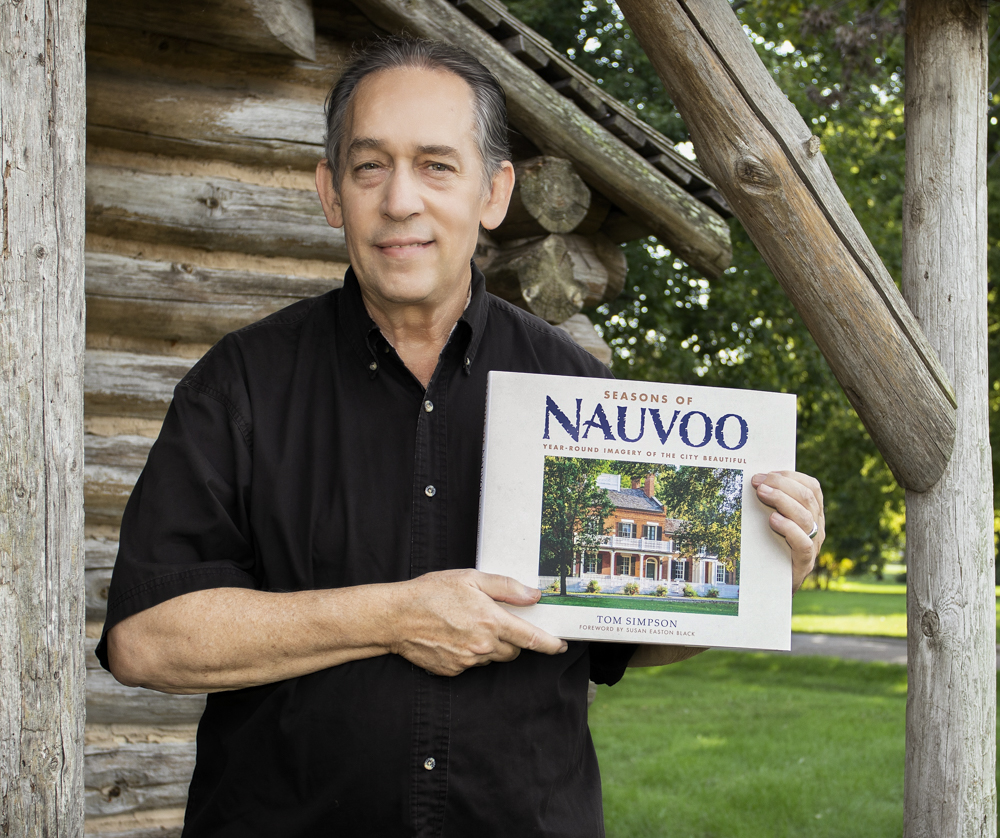Short Story about Our Quick Visit
Most of our trips are planned well in advance, but not all. Our quick visit to the Ulysses S. Grant home in St. Louis was one of those unplanned trips.
On this particular day, we had a few hours between morning and afternoon appointments. Touring this historic site honoring Civil War general and 18th U.S. President fit perfectly in our 1-2 hour timeframe.
Here’s what we learned about the restored “White Haven” farm.
Location:
7400 Grant Road
St. Louis, MO 63123
Contact:
(314) 842-1867 x230
Hours: 9 - 5 Daily
Fees: FREE
Website:
US Grant Home
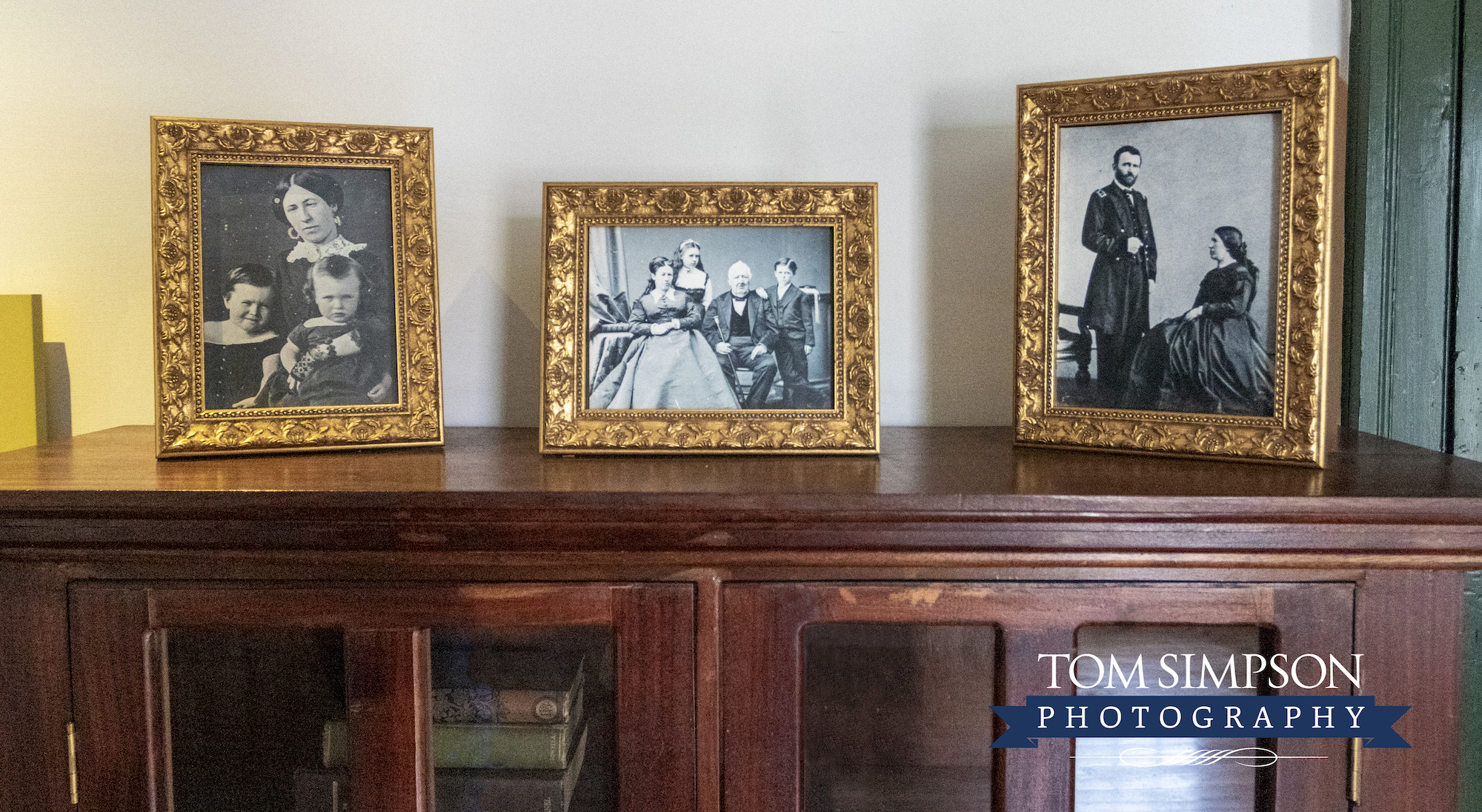
Dent and Grant family photographs rest on an antique bookcase.
White Haven, The Family Home and Farm
First, what is White Haven? It is the childhood home of Ulysses’ wife, Julia Dent Grant. Second, this is where they met, married, and lived part of their lives.
White Haven was originally a sprawling 850-acre farm. Fruit, vegetable, and grain crops sold at market brought income to the family. Timber cleared from wooded areas also added income when sold for coal mine shaft bracing or firewood.
Ulysses worked the farm from 1854 to 1859, in between his military service. Even though their planned retirement at White Haven was never realized, Ulysses and Julia always considered it their family home.
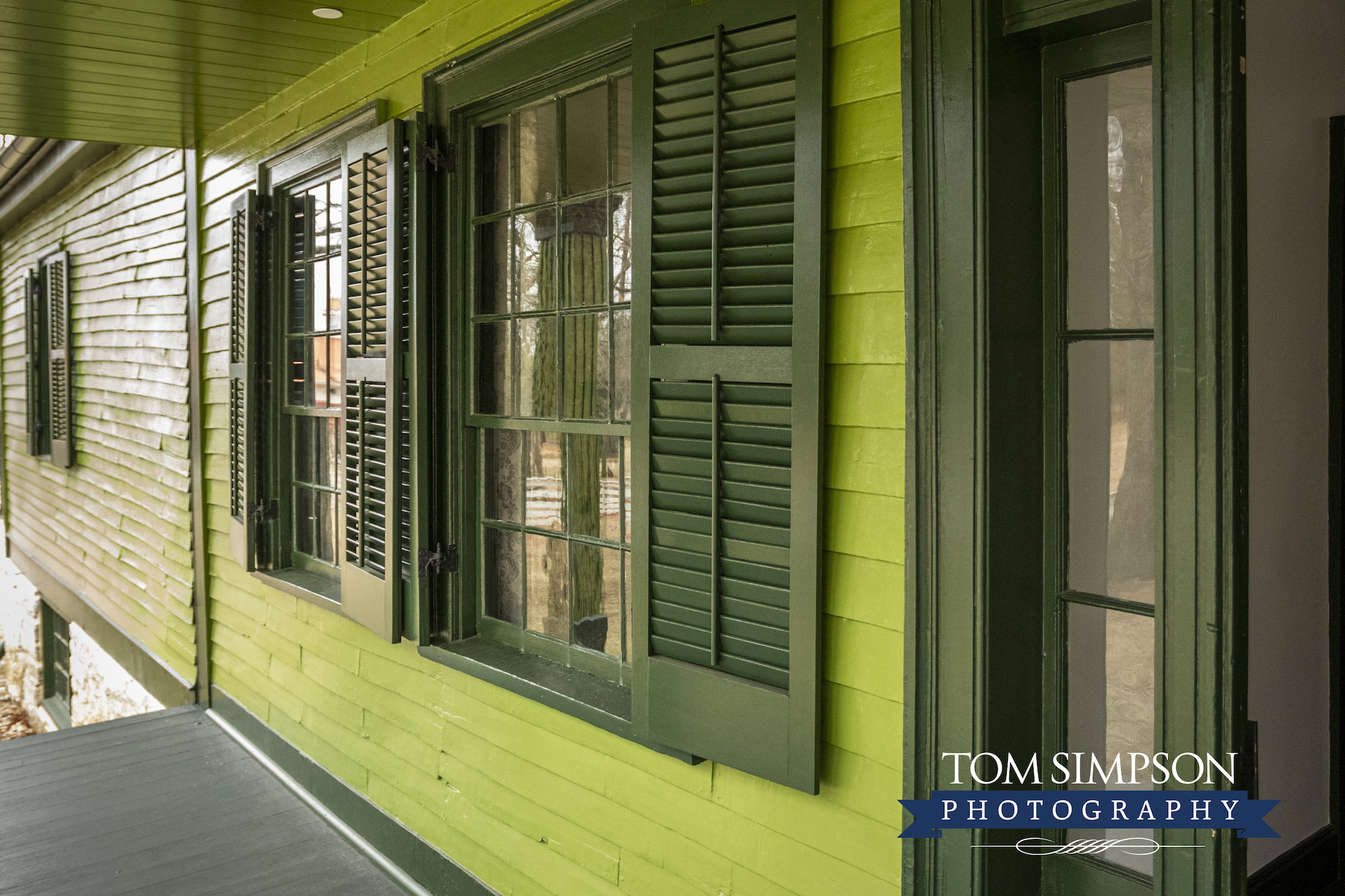
Window shutters of the time were both decorative and useful.
Interesting Historic Construction Details
When touring the property, you will see it has little to no furnishings. Instead of photographing interiors during our quick visit, we focused on historic construction details.
(*A short video tour narrated by a park ranger can be watched HERE. But if you want a 360° view of the house and outbuildings, check out this LINK.)
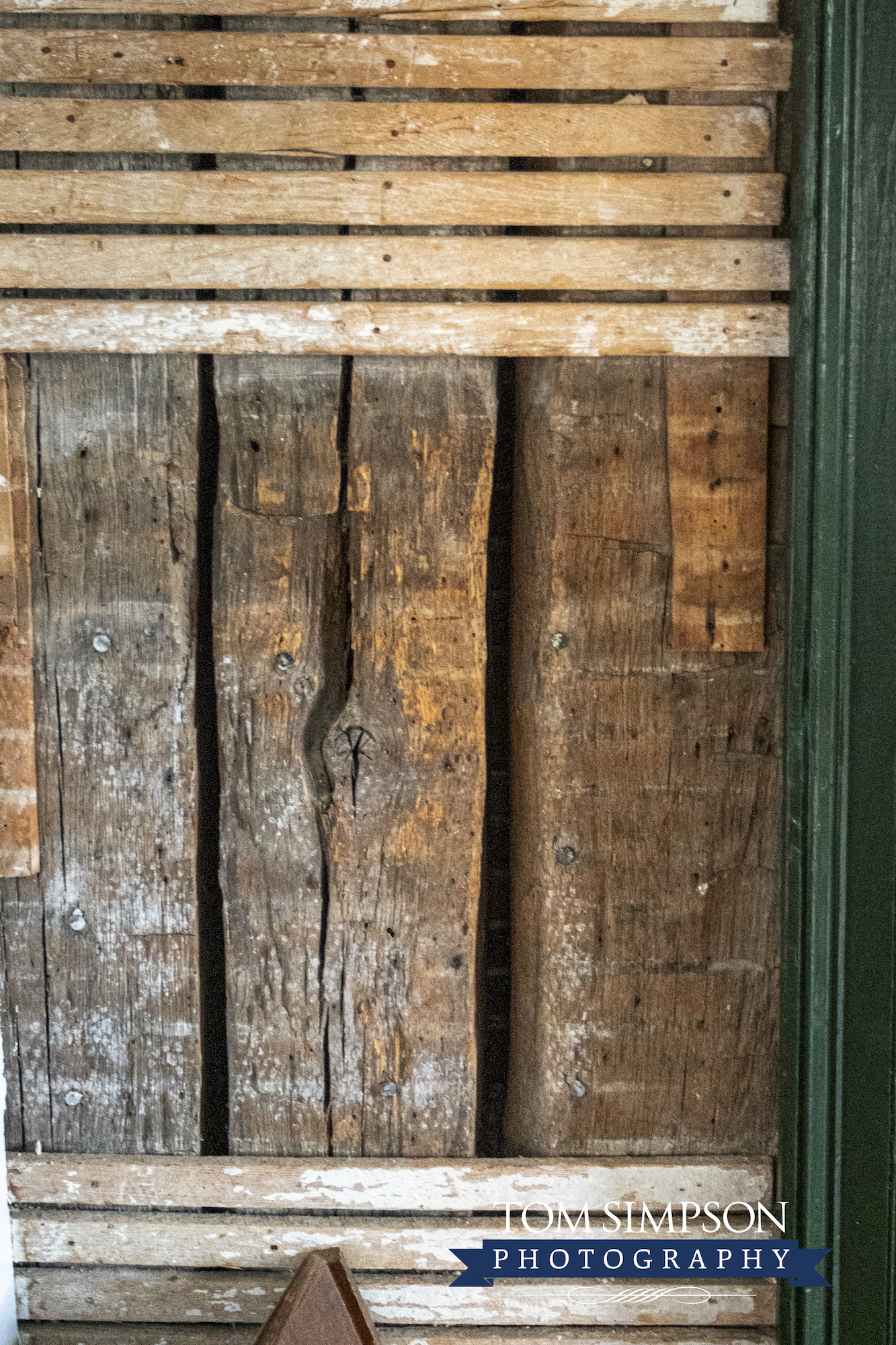
An open wall section reveals the large vertical logs used for wall construction.
1830’s Addition
According to the information sign, Julia Grant’s father enlarged the main house in the 1830’s.
The addition was in the French Colonial architecture style, which is only found in the U.S. along the Mississippi River.
This unique building style uses vertical logs placed atop a stone foundation. Other materials covered the logs, hiding them from view.
Colonel Dent covered the exterior with clapboard siding. Interior walls had lathe and plaster for a smooth finish.
**NOTE: My research found differing dates on construction for both the house and the addition. A 1940’s architectural study says the addition was in place before purchased by the Dent family. The study records are in the Library of Congress files. Access them HERE and also see pre-restoration photos.
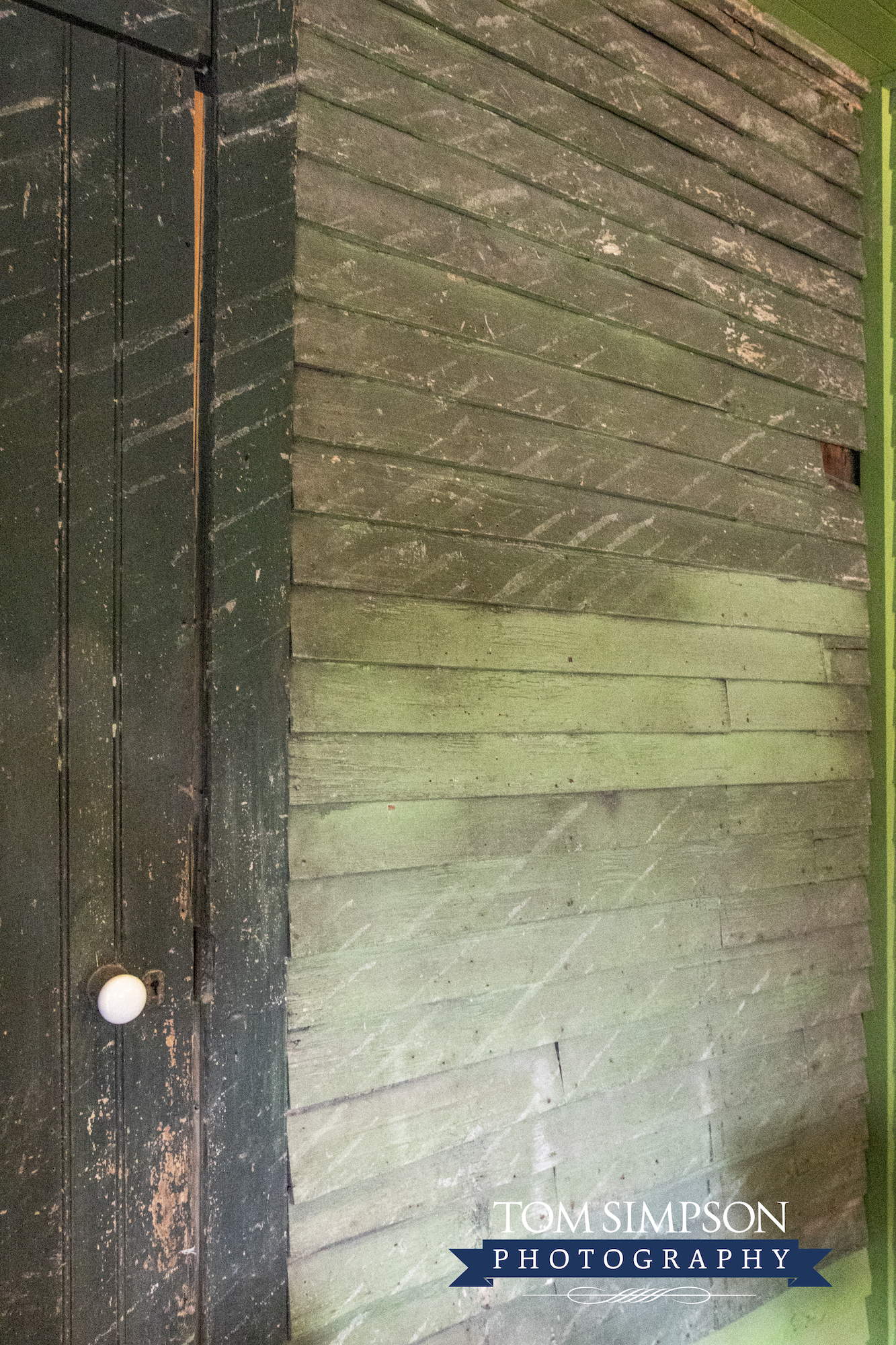
You can see remnants of the Paris Green paint on original siding.
1874 Paris Green Paint
Walking towards the house, “White Haven’s” paint color caught us by surprise. It is bright green with darker green trim.
The original paint, called “Paris Green,” was all the rage during the Victorian era. It was brighter and lasted longer than other green paint.
According to the home’s 1874 ledgers, purchases made included ingredients for mixing the popular color.
***Paris Green paint has quite the checkered history. Two chemists created the color by mixing arsenic and copper. The powder used in the paint was highly toxic, causing many to sicken and/or die. When this was discovered, the paint was quickly discontinued.
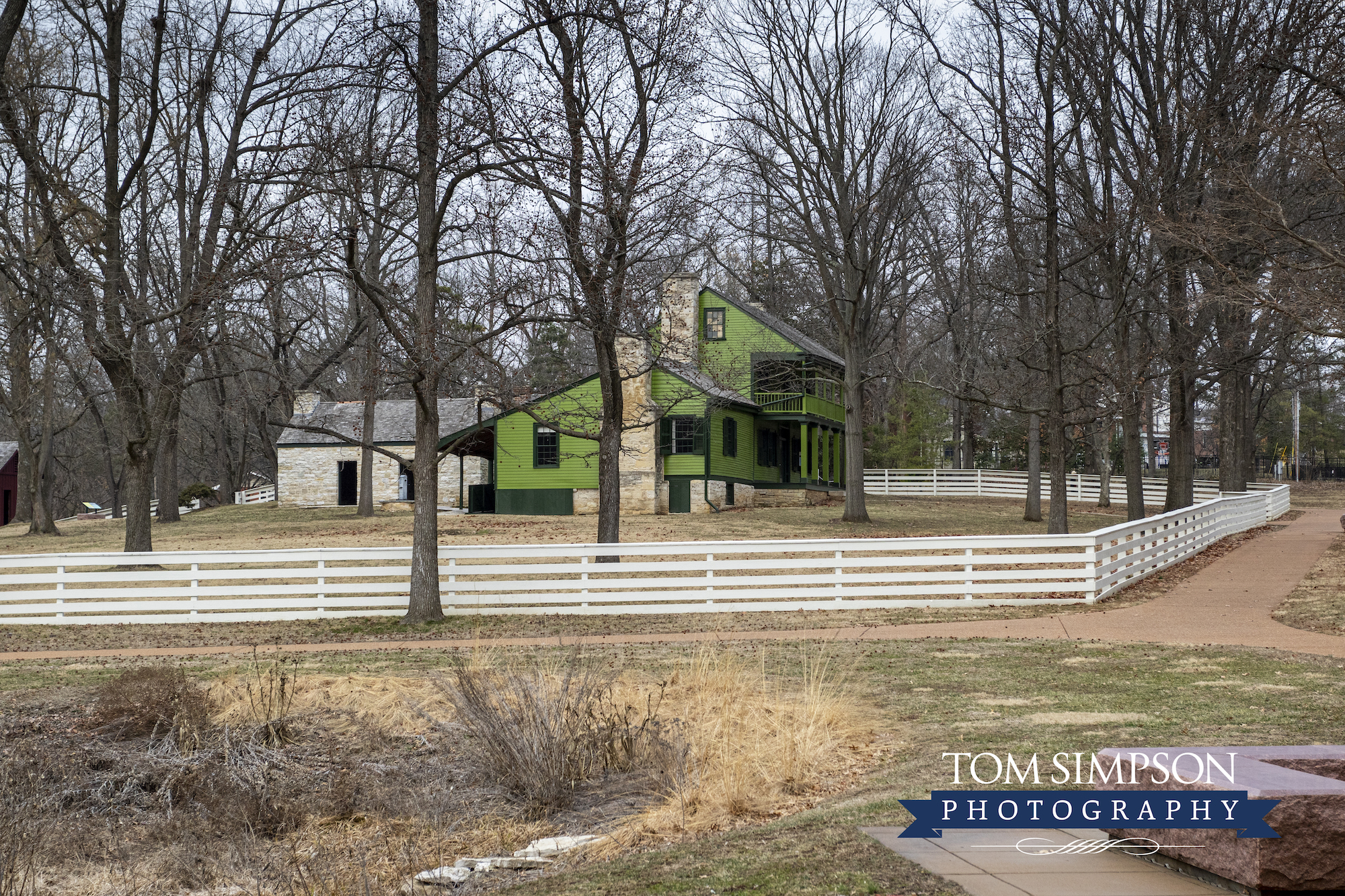
First view of White Haven after leaving the Visitor's Center.
Other Stuff to See
There is much to see and the park rangers are excellent tour guides. Unfortunately, we spent so much time enjoying the house during our quick visit, little time remained for more than a glance of other stuff to see on site. As a result, no photos. But here is a quick rundown.
Visitor’s Center – Site tours begin here. There is an orientation film (which we missed) shown every half-hour. Here, you can pick up a park map, use restroom facilities, and refill water bottles.
Summer Kitchen – Located behind the house is a large stone building, originally used as the summer kitchen and laundry. The double-pen structure dates to 1840.
Ice House – Built circa 1840 into a sloping hillside, the ice house preserved ice stored during winter for summertime use. Perishable items needing refrigeration were most likely stored here as well.
Chicken House – The chicken house dates somewhere between 1850 to 1870. Located down the path behind the main house, both of these out buildings were important in 1800’s daily life.
Stable – The 1871 large wood barn, which Grant helped design, once housed horses for breeding. Today it is a show-and-tell museum of the Grant family history.
Grounds – The historic site comprises only 9.65 acres. Walking paths between each building make visiting the grounds delightful, even on a winter day.
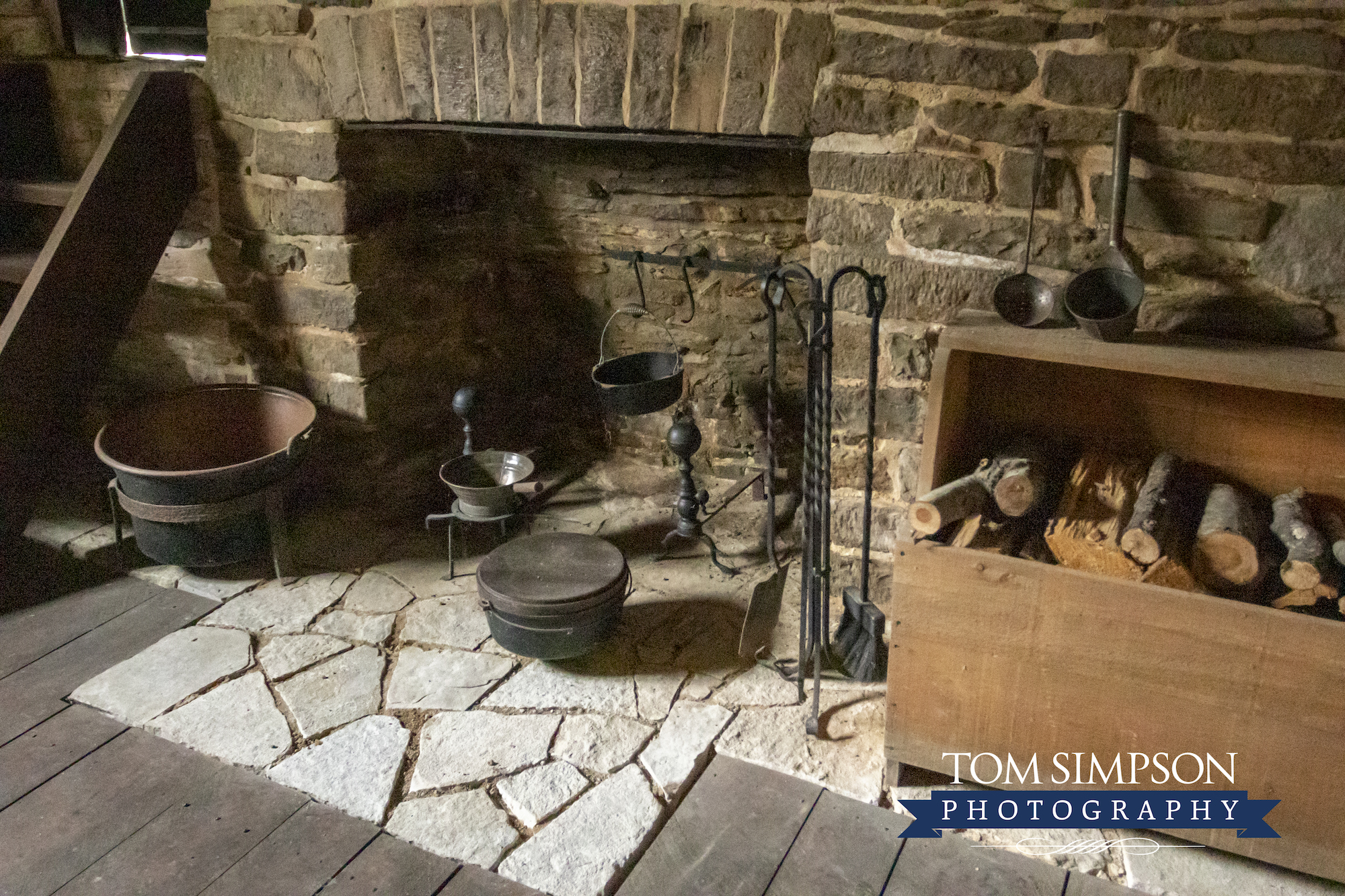
Fireplace in the 1830’s addition basement. Here, embers were kept burning to fuel all other fireplaces on the farm.
Our Pleasant, Quick Visit at White Haven
This is the place for those who love U.S. history, historic architecture, and life in the 1800’s. White Haven’s restoration has all three plus it’s just a pleasant place to stroll the grounds.
Whether you take the ranger guided tour or opt to tour it alone, the former home of Ulysses S. Grant is worthy of your time.
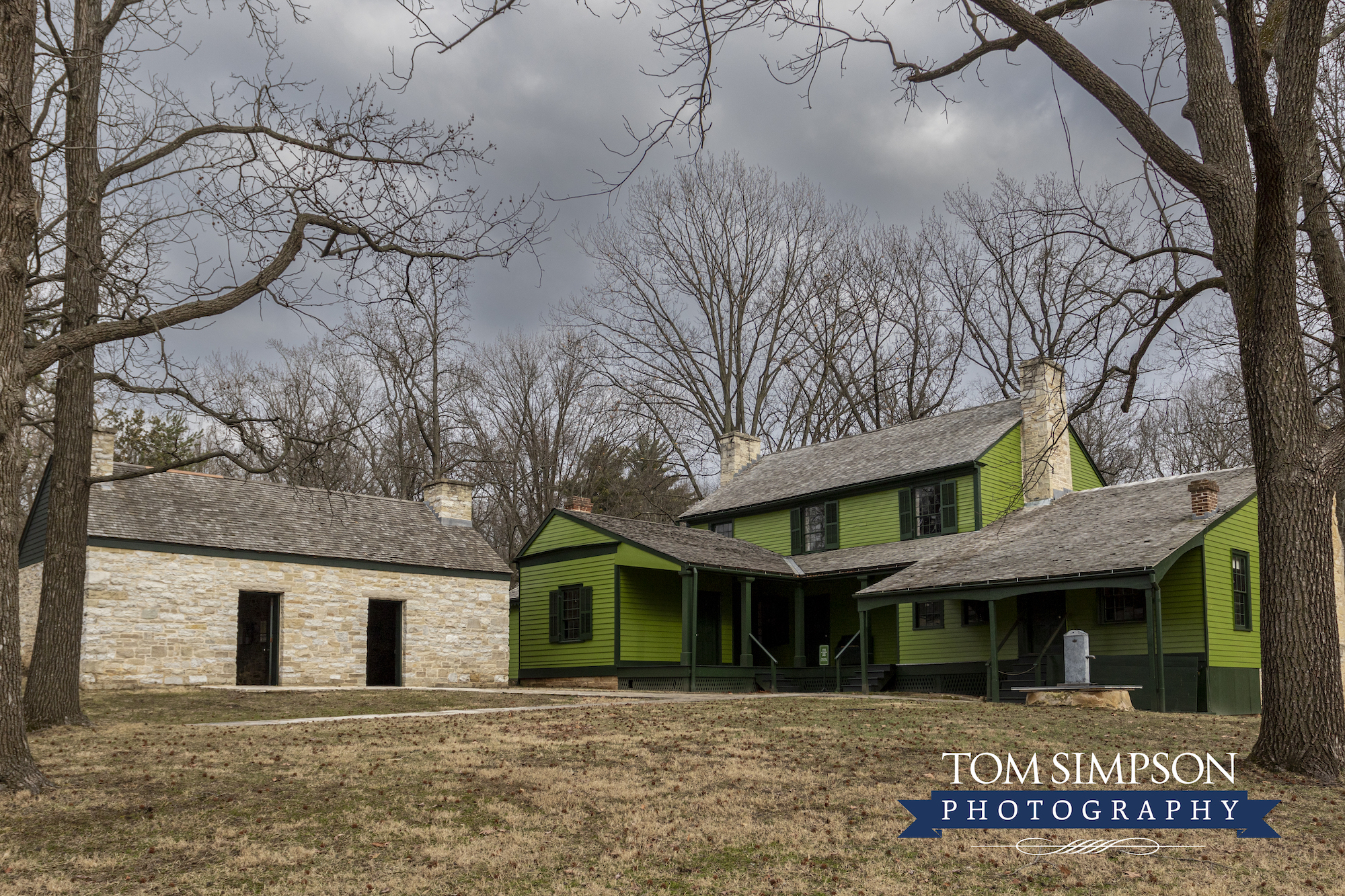
Back view of the house shows Grant's office on the left and the 1830's addition on the right. The stone building housed the kitchen and laundry.
Fun Facts about Ulysses S. Grant
1) Named Hiram Ulysses Grant at birth. Family called him Ulysses. When applying to the U.S. Military Academy at West Point, the congressman who nominated him to attend mistakenly said his name was Ulysses S. Grant. Upon reporting to West Point, he had to accept the name change or reapply. Ulysses accepted the name, along with the nickname “Uncle Sam” by his classmates.
2) While stationed at Jefferson Barracks in St Louis, Ulysses visited his Academy roommate, Fred Dent. He met Fred’s sister Julia. Instantly smitten, Grant proposed marriage 4-months later. She agreed to a secret engagement. They married 4-years later in 1848.
3) Military assignments kept the couple apart for a few years. Grant decided to resign from the Army and return to Missouri. They lived at White Haven, Julia’s childhood home, farming with her family for 5 years. Ulysses returned to military service in 1861 when the Civil War started.
4) Inaugurated 18th President of the United States, Grant served two terms but declined when nominated for a 3rd term.
5) During his 1st term, Yellowstone became the first National Park.
6) Ulysses and Julia owned 650-acres of White Haven by 1870. Planning to retire there, he had a stable built to begin horse breeding. Financial problems caused the Grants to sell White Haven a few months before his death in 1885.
Wanting more ideas on relaxing, playing or learning?
Check out our "Things to Do" page for other Worthy Detour stops.

